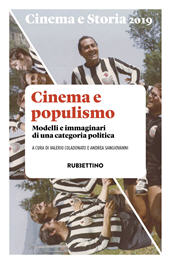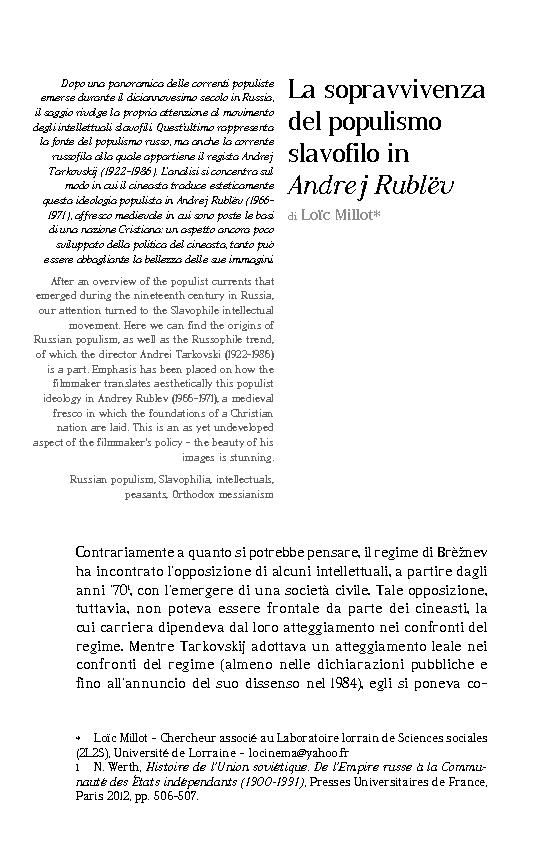La sopravvivenza del populismo slavofilo in Andrej Rublëv
95-113 p.
Dopo una panoramica delle correnti populiste emerse durante il diciannovesimo secolo in Russia, il saggio rivolge la propria attenzione al movimento degli intellettuali slavofili. Quest'ultimo rappresenta la fonte del populismo russo, ma anche la corrente russofila alla quale appartiene il regista Andrei Tarkovski (1922-1986). L'analisi si concentra sul modo in cui il cineasta traduce esteticamente questa ideologia populista in Andrej Rublëv (1966-1971), affresco medievale in cui sono poste le basi di una nazione Cristiana: un aspetto ancora poco sviluppato della politica del cineasta, tanto può essere abbagliante la bellezza delle sue immagini. [Testo dell'editore]
After an overview of the populist currents that emerged during the nineteenth century in Russia, our attention turned to the Slavophile intellectual movement. Here we can find the origins of Russian populism, as well as the Russophile trend, of which the director Andrei Tarkovski (1922-1986) is a part. Emphasis has been placed on how the filmmaker translates aesthetically this populist ideology in Andrej Rublëv (1966-1971), a medieval fresco in which the foundations of a Christian nation are laid. This is an as yet undeveloped aspect of the filmmaker's policy - the beauty of his images is stunning. [Publisher's text]
-
Articles from the same issue (available individually)
-
Information
DOI: 10.1400/272605
ISSN: 2283-9852



